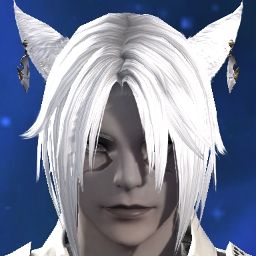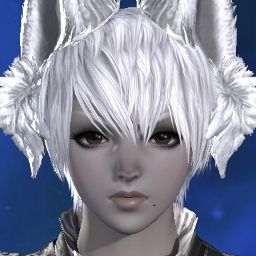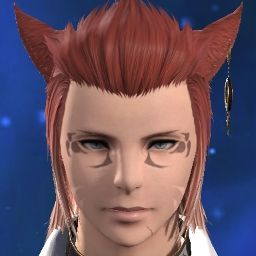They used time travel poorly. SE should of revisited their masterpiece in Chrono Trigger for proper use of time travel. Or even Legacy of Kain. They've made quite a paradox and it's going to bite them in the ass at some point.
The world building was great but the pacing and story behind it was awful.
I expect heavy liberal use of "Azem is a queer, is weird and has crazy magic" to explain away things they can't explain at all like they have been doing since Shadowbringers.
Hybrid View
-
01-31-2022 12:23 AM #1Player

- Join Date
- Nov 2015
- Posts
- 3,205
- Character
- Bastilaa Shan
- World
- Excalibur
- Main Class
- Blue Mage Lv 80
(16)
-
01-31-2022 01:49 AM #2Player

- Join Date
- Apr 2015
- Location
- Palace of the Dead
- Posts
- 1,483
- Character
- Ayuh'ra Bajhiri
- World
- Mateus
- Main Class
- Dancer Lv 90
Really my main issue with Endwalker was Fandaniel. Not because I disliked him but...really the opposite. I liked him a lot, I wanted more time with him. The game says he is in despair but aside from subtle facial expressions and animations we don't see that much. We don't know which memories of Hermes he carries exactly other than dreams of the Elpis quest chain burned into him by Kairos.
Also the reveal that Fandaniel is Amon meant he needed a bit more time to shine, at least to me. Amon is a character that's been bouncing around the lore since ARR, he created most of the nonsense at the Aetherochemical Research Facility and Fractal Continuum, was the main designer (apparently) of the Binding Coils and the tech used to seal the Warring Triad, he very likely designed the Diablo Armament under commission from Xande as well. Like this one dude is responsible for a huge amount of past content.
I didn't need him to be around the whole expansion but one more zone would have been nice.(5)
-
01-31-2022 04:31 AM #3
These are my personal grievances with the story. Emphasis on "personal" since I understand why some people would enjoy it and I recognize the appeal, but it just didn't resonate well with me:
Sudden plot elements: Hermes, Meteion and Dynamis were just too abruptly introduced in the story. Yes, we've heard of the seat of Fandaniel and we knew of "the sound" but the thread of correlation was too thin between what the player knew and what was introduced. I think it's important for stories to have a build-up and continuity of some degree, that makes you speculate about the elements and where they might go from there, but if you drop new, all-encompasing elements all of a sudden, it's hard to keep me invested because at any moment you could just drop another one and leave me in the dark again. I ended up caring very little about Hermes and Meteion which took away from the whole experience since they're central aspects of it.
No, I wasn't expecting Zodiark to be the "big bad", but I think there were other possible venues of storytelling they could've chosen using pre-existing elements instead of adding entirely new ones right at the relative end of the story, in true Final Fantasy fashion. I wouldn't have enjoyed FFVI as much as I did if Kefka was only introduced at the Floating Continent when he's about to tap into the Warring Triad's power. Even the infamous Yu Yevon from FFX had some modicum of foreshadow and previous exposition.
You could retroactively apply Dynamis to previously established lore (such as the Omega raid or Limit Break), since it's such an abstract and vague concept, but that's not good world building in my opinion. Who knows now what's Dynamis and what isn't? Will they even bother to articulate it with future stories and, if they do, will they at least give it a more concrete explanation and modus operandi, or will it be relegated to a very anime-esque plot device for when the WoL is in trouble?
Time travel: Time travel often does more harm than good in the story. I'm not saying you can't have an interesting story with time travel, but it does require a neatly packed frame since the chances of contradiction and plot holes are enormous.
EW not only did time travel, but they decided to do the closed loop variant which is, in my opinion, the most flawed one. The whole "who comes first..." scenario just feels like a cheap excuse to not give proper causality to the events presented: it expects you to just accept that it is what it is and to move on. No sense of wonder as you unfold the reasons, no theorizing about the contrivances involved, no speculating about its widespread unknown impacts and variables, nothing.
Theme: Nihilism is, quite frankly and very personally speaking, a very boring theme. For every german philosopher and indian monk claiming that there is no meaning to human existence, you have millions of people giving meaning to their own lives, be it through faith, love, ego, personal goals, legacy, values or even just hedonism.
I think it works well when it's tied to the development of a character with relatable traits, surrounded by goals, flaws and situations that make said character adopt a very personal, subjective type of nihilism, shaped by their own trials of life. Caius in FFXIII-2 comes to mind.
Suffice to say, Meteion is quite the opposite... although it makes sense considering what she is. Her take on nihilism was extremely shallow and juvenile and it kind of dragged the whole writing with it. At some point when it was just the WoL, the twins and Meteion in Ultima Thule, the dialogue was almost reduced to "My hope is stronger than your despair!" and "No! My despair is greater!". This is the type of writing I expect from something like Danganronpa - and I quite enjoy Danganronpa, but for the comedy, not because I take the writing seriously.
I never understood why some writers present hope and despair as if they were some kind of hidden yet concrete power that you declare to others. Emotions are more complex than that, specially when interacting with the emotions of other people. I think both themes are better presented when they're subtle and preferably not even mentioned: they're emotions and they work better setting an atmosphere. You could feel the despair and the misery of those garleans in the subway refuge, or in Quintius' melancholy: the story and its chracters don't need to spell it for me.
Fantasy vs Reality: Sometimes it feels like the writing is not sure if it's based on reality, based on fantasy or the latter constructed upon the former.
I think it was mentioned in this thread before, but the Ea is arguably the biggest example: in this universe where the equivalent of matter is well known and even interactable, where people have created underground suns, sent ships to the edge of the cosmos - which is 60% something made of "emotion power" - and all sorts of rules of physics are nonchalantly broken by fantasy elements, why is the game telling me that suddenly thermodynamics and the entropy of the universe is a big deal?
I could stretch the point to the Ancients. Of course they have a different view of death than I do: they're virtually immortal beings with demiurge-like powers, living in an enlightened society articulated by social dialectics and communitary values and - more importantly - with a clear understanding of the cycle of life and death. Me, the poster, have some decades of life ahead of me, have no idea what happens after I die and am surrounded by a world filled with animosity, strife etc. The game expecting me to so readily apply my own sense of life morality to a world so detached of my own feels forced. Perspective is everything.
In fact, some of the reasonings for the despair of certain worlds (like the Ra-La one) seemed to completely disregard how complex people tend to be, specially when on the verge of destruction and how we always aim to adapt and preserve life. But then again, those worlds may have been under the Endsinger's influence to begin with so no point in commenting further.
Ultima Thule: I loved the zone's atmosphere, specially the Ea part which really sold the eerie alien aspect. The music (the instrumental one) was also on point. Other than that, unfortunately, I feel it was one of the weakest parts of the expansion.
Admittedly, that's mostly because of the abovementioned points, but the zone just sank my expectations further. I can understand when people say the scions' "sacrifice" was just for the message, but that doesn't change my perception that the entire thing was a completely pointless, overly sappy waste of time.
The moment Thancred "died" and the characters were just "okay, moving on", that was already a sign. When Estinien was "dying", the first thing I thought was: "Oh, it's gonna be one of those moments" that have been done countless times in other japanese RPGs and animes. Just because something was done before, doesn't mean it's bad, but Ultima Thule did it in such a formulaic, non-impactful way that whatever immersion I had was just replaced by "Alright, here's zone 2, who's next to make the speech and disappear so we can move on?" When the writing becomes this predictable, it becomes hard to create immersion to begin with. I feel they could've just kept the scions there the whole time, interacting with the different alien races and it would've probably been better.
And before someone says it: I don't think killing characters for the sake of emotional impact is good either. That said, this expansion was advertised as an apocalyptic moment. There is a limit of how many random NPCs you can kill in the most tragic ways before it stops being impactful because the main cast just seems to be immune to it. You don't have to kill the scions, but surely you can leave scars - both literally and figuratively - on them: it's a sign of development and of the stakes the story is trying to present.
Why did a banquet in ARR leave a bigger impact on the scions than the actual end of the world? Also, notice how the WoL's dialogue became influenced by Haurchefant and even Emet-Selch: because those characters left a legacy after death that shaped the protagonist's view. Death doesn't need to happen everytime, but it can improve a narrative and I feel EW had some great opportunities to use it.
With that said, some people saw EW as more of a conclusion to those characters, since they were already completely developed by the end of SHB, and that's fair, but if that's the case, I feel it was a very boring conclusion.
Other points I could mention (plot conveniences, the whole Venat thing) have been said countless times, so I won't extend this wall of text. Apologizes if any of this sounds condescending or overly picky as it was not my intention: if anything, I'm criticizing EW the way I am because of how much I appreciate this game's story and lore.(32)Last edited by Consurgens; 01-31-2022 at 06:14 AM.
-
01-31-2022 05:15 AM #4Player

- Join Date
- Feb 2021
- Posts
- 3,472
- Character
- Kizuya Katogami
- World
- Cerberus
- Main Class
- Conjurer Lv 81
Agree with everything you said, but this especially i resonated with a lot. There really just wasn’t any time that i felt this expansion felt truly end of world-like. Thavnair was probably the closest but even then it was just random npcs introduced to be killed off for about 5 minutes. Your point about the banquet is a good one as well. Why is it that the banquet or the garleans were able to apply more consequences or scars than the literal end of the world event was? This can be applied to shadowbringers too tbh.
1.)Yes, theres good info to suggest limit breaks in some form are indeed a part of Dynamis control, which prayer is also a part of, hence we see this with Elidibus and in Ktisis.
2.)She approached them after the Final Days occurred, when in reality she could have approchaed them beforehand. I've reiterated this point numerous times now and you keep ignoring it or saying "but, well...there were problems with that." No there weren't. She chose to not even give them a chance then, she kept her secrets to herself and continued to keep them and lie in our own time as well. Shes a manipulator and deceitful person.
3.) He does it purely against limit breaks, if you want to amount it to something else thats on you.
4.) Thats about what 90% of the arguments advocating for Venat are based around.Dont see you equating it as such when it benefits your argument hm? Regardless i've given absolutes before and people simply dodge around them or avoid those points entirely.
5.) As for your point about the creating beings just to suffer, please, pray tell, explain to me how this is any different from us summoning primals in the Empty just to kill them without their consent.(13)Last edited by KizuyaKatogami; 01-31-2022 at 05:23 AM.
-
01-31-2022 07:04 AM #5Player

- Join Date
- Feb 2019
- Location
- Ul’dah
- Posts
- 822
- Character
- Eara Grace
- World
- Faerie
- Main Class
- Paladin Lv 100
We have clear confirmation that the Ancients largely could not manipulate Dynamis in a meaningful, and uncertain lore that hood that LBs can be aether or Dynamis. The conclusion is clear and unambiguous.
I’m not the one ignoring the text. It’s stated clearly why that wouldn’t work and the consequences that would stem from it, yet you repeatedly handwave it away and then wonder why she didn’t do that. Thats not a point, that’s ignoring evidence.
Why are you so set on making her villain when not even the Unsundered dislike her as much as you do?
Yes, its a shield of aether, it does not involve the manipulation of Dynamis at all.

There are no maybes in the text. I don’t have to jump through hoops to argue my point about what she did or why. The game gives plenty of evidence to that.
Sure, a primal born from aether, not souls, is not a living being. The Ancients feel similarly. And whether such a being can even manipulate Dynamis at all, is also uncertain.
Given Hermes had to make Meteion aetherically weak for her to manipulate Dynamis I believe it would be necessary.
We have no clue if constructs can manipulate Dynamis, as it is not aether and no confirmed arcane construct as ever manipulated Dynamis, only ensouled beings. And the idea of sending beings whose purpose is out of their control, with wills of their own, into a hellish world simply so you can avoid destruction, seems almost like a Nier plot.
Didn’t work so well there.
The one constant we’ve seen is that only those with wills of their own manipulate Dynamis, to do this would strip them of that.
There was nothing stopping a sundered being from doing the same. Venats hope however, is that living beings would be able to find meaning in their lives even when faced with suffering, that beauty would exist even would faced with death. If they couldn’t, then no one would be able to stand against Meteion, and that would be that.
There being a potential room for further developments and “this proves that the Ancients could manipulate Dynamis” are not the same arguments.(4)Last edited by EaraGrace; 01-31-2022 at 07:17 AM.
-
01-31-2022 03:17 PM #6Player

- Join Date
- Feb 2019
- Location
- Ul’dah
- Posts
- 822
- Character
- Eara Grace
- World
- Faerie
- Main Class
- Paladin Lv 100
I was remarking that he’s the only one who showed any ability to effect change dynamis, limited as that manipulation may be. It’s explicitly stated that the color never changes around everyone else. It’s certainly possible that’s not the default color for Elpis flowers and they were simply all expressing the exact same emotion, but either way it’s more about how limited the ancients were to interacting with it. You can just as easily point to the way Venat, Emet, Hermes, and Hythlodaeus we’re unable to hear Meteions pleas, while the WoL could as another example.
The Elpis flowers respond to the emotions of others, it doesn’t effect change as it lacks a will to do so. Standing near an Elpis flower won’t make you susceptible to its influence through dynamis, but standing near Meteion? Different story.(3)Last edited by EaraGrace; 01-31-2022 at 03:19 PM.
-
01-31-2022 07:07 AM #7
This makes me regret trashing my notes. I had quite a list by the time we landed on the moon. Unfortunately, reading through it I realized it would only serve to upset the people who asked me to enjoy it.
Thank you for your post. It quite nicely sums up many of the sore points I had with EW's story.(15)
-
01-31-2022 02:46 PM #8Player

- Join Date
- Dec 2015
- Posts
- 1,624
- Character
- Novia Marius
- World
- Balmung
- Main Class
- Gunbreaker Lv 80
Now with a few playthroughs under my belt the last bit of msq feels a bit muddy for me. Prior to Elpis the story is about finding hope in moments of hopelessness, which is a nice sentiment and par the course of FFXIV's overarching story. Once we hit Elpis it then shifts to Perfect Is Bad, which even gets a speech from a bunny in the 2nd part of Labrynthos explaining that Perfect Is Bad and we should stay in our lane and just make due with what we have. Then we reach the last zone and attempt to juggle Perfect Is Bad (Ea, Omicron, Peace wars, Ra-la), Stay In Your Lane Or Die (little fish people), finding hope in moments of hopelessness (friends, flowers, etc) and the dragon ghosts...that never chased perfection or things outside their means.
I think the funniest summary of how sideways it gets is when the Ea spend their whole area being our example as to why Perfect Is Bad in that they learned everything there was to learn and it ended poorly and Yshtola just says NO U as her rebuttal. She wants to learn everything she can learn! But now its ok because she is doing it I guess.(21)Last edited by Rokke; 01-31-2022 at 02:53 PM.

-
01-31-2022 03:21 PM #9
Yeah, that part struck me as people telling someone it can't be done despite numerous trial and error and that someone just says it doesn't matter because they're special and unique. Okay, Yshtola, let's just disregard their warnings and still take copious amounts of knowledge while not succumbing despair.
(12)
-
02-02-2022 08:42 AM #10
The Ea lost hope (or faith or whatever you would call it) in their science when they came to the conclusion that no matter what they learned they couldn't escape the inevitability of death and the entropy of the universe. So when Yshtola does her confrontation she is reaffirming that their is a point to learning and therefore living in that even when what you are learning isn't something you want or something that has a positive benefit in the way that the Ea used their science to dictate their culture and society, there is still a point to doing so.
In the same way that the sadragons lost hope in being able to live peaceably with other species, as they always seemed to face conflict wherever they went. And the Omegabites acted from a loss of hope by not being able to find a worthy opponent to help them continually advance their species augmentation as they were ultimately destoryed/lost in the Sigmascape series. With a history of continually seeking out conflict to preserve their existence.
All 3 reflect the same ideas that are presented in Elpis with learning about how things are created and what their purpose is. The flying green thing because it has an affinity for the wrong element and couldn't fly( a reflection of the EA), as an example, was deemed to be unworthy of existing by Emancipation Selch so he suggested that it should be destroyed(reflection of Omegabites). But Hermes was the one who wanted to try and teach it to fly, and ultimately was successful and proved that even things that differ from what was planned or what should have been still has value and can contribute to the whole (reflection of the sadragons).
And then you have how all of those tie into the representation of varying races like the Garlemaldians (Omegas), Elephant people in Thavnadarian(Ea), and Old Sharlyan(Dragons). And then you have the last section in Ultima Thul that would represent everyone else that the WoL is "fighting" for to save from the Final Days, which is where you are met by the ghost of days gone past.
I don't think its about Perfect is bad but more so perfection is no longer attainable since a certain someone decided unilaterally they knew best.(2)

 Reply With Quote
Reply With Quote















